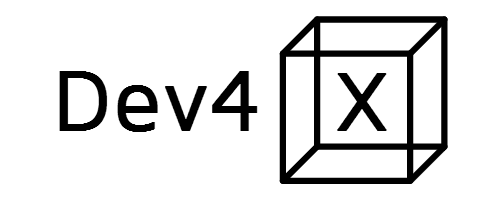Dev4X Learning Quest World
Dev4x is using modern technology to ensure children who don't have access to schools or quality education still have an opportunity to learn. Imagine a group of children in a refugee camp, or in remote villages, recovering from conflict, natural disasters or epidemics with no access to teachers or resources. Syria, Nepal, Nigeria and Liberia, are current examples of this urgent need.
For the cost of a 7 inch Android tablet, a solar-powered charging station, and the curation or creation of appropriate learning content and apps that work offline, these children, and their families, will be given educational opportunities previously unimaginable. In 2015, not only do we have hundreds of thousands of free educational apps and Open Education Resources, we also now have vastly improved technology for sending and receiving information. For example BRCK, the 'go anywhere, do anything, self-powered, mobile WiFi device,' designed in Kenya. This is a portable hotspot designed to automatically switch between 3G, 4G, WiFi or satellite connections as needed. (See https://www.brck.com/) We also have thousands of new browser-based tools ready to easily create, remix and share content. See http://www.africanstorybook.org/. This combination of affordable, robust and mobile technology opens up new opportunities to the most remote and underserved children in our world.
The first Dev4x prototype is being developed to align with the Global Learning XPrize competition. Dev4x is designing an interface that is suitable for Swahili speaking 7 -10 year olds with little or no literacy skills. Through audio voice-overs and visual communication, children will be guided as they enter a virtual world replicating a rural village. Some items can be replaced with a different set of images reflecting local culture. The child can explore their own home and farm area to perform basic daily tasks of cooking, washing, planting, harvesting and buying items from the local shop. As they interact with these familiar tasks and objects, basic nouns and numeracy concepts will displayed on screen. New areas and buildings will be gradually revealed as the child puts in effort and progress.
Image from Sunday Ngakama
The virtual world will offer increasingly difficult daily challenges and display a list of resources to build up the necessary skills. This virtual world is not designed to teach all introductory numeracy and literacy concepts, rather, it is a way of pulling in third party apps and resources to deliver appropriate content based on the child's previous performance and preference. The in-world activities are designed as stealth assessments to diagnose the current skill level and interests of the child. Each time the child visits a location, for example the cooking area, they will be presented with increasingly difficult cooking tasks, like recipes which require maths and English skills. The scaffolding support of visual prompts will be reduced over time and an eReader provided to break words down into letter chunks and sounds. Various player tracks will be offered to fast-track through areas or go back and review tasks. The approach could be described as a spiral curriculum. The benefit of this overarching framework is that the child will be provided with a meaningful context for learning and can see the benefits of numeracy and literacy in real everyday life. Every time a task is visited, and revisited, the child can explore deeper levels. This spiraling curriculum approach, “helps learners make connections over time, which creates more robust pathways for recalling information. Multiple, strategically spaced and strategically progressing learning experiences may produce deeper, more conceptual learning.” http://everydaymath.uchicago.edu/about/why-it-works/sample-grade-level-goal/
As new learning resources become available they will be tagged and will 'plug in' to the virtual world.
Natalie Denmeade, an experienced educator, social entrepreneur and eLearning Developer from Australia, is heading to Tanzania soon to work with local content producers and to test the prototype. Students and community members will be encouraged to create content, as well as professional developers.
Quests will be available in this virtual world to guide learning. A child can choose to play the role of different people within the village, e.g., an engineer, an inventor, a healer, or an agriculturalist. They will be presented with a series of tasks and supporting resources to become qualified in one or more of these roles. Each success will be added to the child's profile through simple 'I Can Statements' which are grouped together to earn an Open Badge. Snapshots of learning are recorded in a Portfolio to support these statements and can be mapped against National standards provided by State or Federal accreditation bodies.
Image from Sunday Ngakama
The end game for the learning experience in this virtual world is to form a team with other children to become "The Protectors.” While in the Observatory, one child is star gazing and notices a Meteor heading for the moon. If the children can band together to read the instructions, measure the fuel, and purchase the equipment in time they just may be able to come up with a plan to save Earth's moon from destruction before time runs out. Do you think they can do it?
If you have any doubts about the ability of children to teach themselves literacy skills with educational apps on a tablet, watch this video of children in an isolated Ethiopia village who taught themselves the alphabet, how to write words, and emergent reading skills, doing just that.
http://bigthink.com/collective-intelligence/can-children-teach-themselves-to-read
GAME OVER





